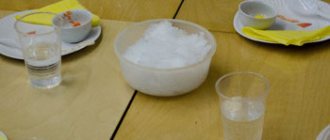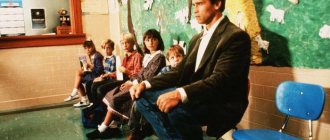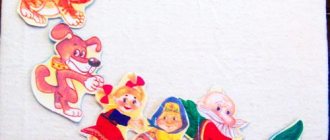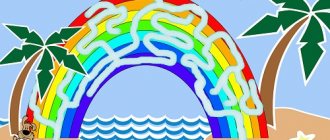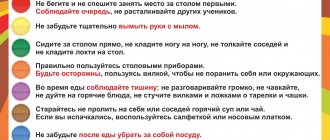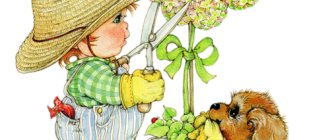Abstract of OOD in the senior group “Path to Economics”
Lesson summary “Path to Economics”
Target:
to introduce children to the concept of “economics”, to determine its place and role in human life, to promote interest in the economic sphere of life.
Tasks
:
Educational: To form the concept of “economics”. Form an idea of banknotes.
Developmental: Train children in the ability to use previously acquired knowledge in solving specific economic problems. To clarify the idea of the family’s economic capabilities, its wealth and the approximate level of needs in accordance with the family budget. Reinforce the concepts: “budget”, “price”, “bank”, “salary”, “pension”, “benefits”. Develop the ability to think, introspect, and comprehend.
Educators: Cultivate the correct attitude towards money as a necessity of life. Foster a respectful and caring attitude towards money as a means of paying family members.
Vocabulary work:
Enrichment of vocabulary: wages, scholarship, pension, allowance, budget.
Activation of the dictionary: economics, income, expense, advertising.
Preliminary work:
conversation “What is advertising”, “What types of advertising do you know”; reading fiction: V. Kryuchkova “The Journey of Economics and His Friends”, K. Chukovsky “The Cluttering Fly”; didactic games: “Professions”, “What are the types of income”, “On the contrary”, “What cannot be bought”; role-playing games: “Supermarket”, “Advertising Agency”, individual work: the game “I’m looking for a job”.
Equipment:
screen, projector, laptop, illustrations “Family Budget”, cut-out pictures for the game “Income and Expenses”, ATM, “money”, attributes for the game “Shop”
Progress of the lesson:
Children greet guests. We say to you: “Hello,” and this means that we wish you health. Let's greet you in an unusual way ( we greet you with palms, little fingers, elbows, fists and give each other a thumbs up
): “We’re in a great mood!” Look at each other and smile.
Today we again embark on a journey of knowledge. The journey ahead is exciting and interesting, and we must set out on it in a good mood!
IN :
I invite you to take a tour over the city in a hot air balloon, departure right now. Are you ready for a little trip? We will travel around Sibay and return back to kindergarten.
(went in, sat down, the screen showed a bird's eye view of the city)
Look how beautiful it is, we are flying over our city and seeing it from a bird's eye view! What is it called? (answer) Look, our town lies in the palms of the mountains, like a little pearl. And every vein on it is streets, squares. Our city is beautiful and quiet in museums, churches, mosques, strong in factories and mines, passionate in stadiums and gyms, talented in art, music schools and theaters. This is our Sibai. (turn off the screen)
And everything that we see now must be protected and increased. What does it mean to protect? (do not break, do not destroy, do not harm, save)
You know, there is such a science - ECONOMY. What is "economics"? (the science of how to live correctly, frugally, spend money and resources wisely. Resources are natural reserves, such as water, gas, electricity, paper, trees, etc.)
So what can you save? (water, electricity, money, take care of toys, save paper, take care of your health so as not to spend money on medicine later, you can also save time, etc.)
Everything that surrounds us in our city is inextricably linked with science and economics.
I suggest you watch the cartoon “Lessons from Aunt Owl” (children watch the cartoon, duration 3 minutes)
You and I watched a cartoon and learned that economics is... (children's answers)
Our ball goes down. So we landed. What's in front of us? What do we see? (on the screen there is a photo of the Sberbank bank, there is an ATM near the screen)
What is Sberbank? Who works at the bank? I can tell you:
The bank employs many specialists. For example, documents are drawn up by tellers.
Cashiers work in closed booths.
In the hall of the bank premises consultants talk with visitors.
As well as collectors and security guards.
In order to answer the question of what is stored in the bank, you need to guess the riddle:
IN:
Guys, guess the riddle:
They come in copper
Shiny, paper,
But for any of the people
Believe me, they are very important. (money)
That's right, money is kept in the bank. They are different, and in each country they have their own name. (Money on the screen)
Why do you think they are so important? For what? (children's answers) That's right, people need money, it is impossible to live without it: buy food, clothes and other things; go to the theater, cinema; travel by transport, etc.
IN
: Where do you think the money comes from? (you can earn it, find it, win a lottery ticket, you can give money as a gift) That’s right, but the surest way is to earn it.
What do you think the money earned through hard work is called? (salary).
Can anyone earn them? (yes any adult)
What about children? (children should not work; they are protected by the CONVENTION ON THE RIGHTS OF THE CHILD; children can provide all possible assistance to their parents at home, help their grandmother at the dacha, in kindergarten, but only at their own request). There are older children (your older siblings) who are in high school. And I believe that if they want, they can make money. What kind of work can they do? (sweeping, delivering newspapers, washing cars, watering flower beds)
This means that money for the family is earned by all family members.
(hang the illustration “Family Budget” on the board)
What do you think is a “family budget”? (this is the amount of money that all family members earn, for example, the salary of mom, dad, grandmother’s pension, brother’s scholarship, all the money) That is. These are the income and expenses of a family for a certain period of time.
We will find out what the “family budget” consists of and what it is spent on by playing the game “Income and Expenses”
In front of you are 2 circles, cut pictures. On this table we collect FAMILY INCOME, and on this table FAMILY EXPENSES (picture icons of a wallet and an open wallet)
Well done, you did great. And now we will relax and have fun.
Fizminutka (song on the screen)
I suggest you sit down and talk.
Well, let's continue. People need money; it is impossible to live without it. Where can I get money? (children's answers)
In order to earn money you need to get a job.
That's right, let's think about how you and I can make money?
(children sit in a semicircle, talk, offer their options)
I hear an incoming call, Dasha is on the line with us.
(video on screen)
Video 1
- Good afternoon guys. My name is Dasha. I am glad to welcome you to my beloved city of Sibay. Unfortunately, I am very busy at work, otherwise I would also be happy to take a tour of the city with you.
Guys, I really need your help. I have my own store. Selling goods is not so easy, and there is a huge selection of goods on the market and in the store. What should I do so that my product is sold and everyone knows about my store? (children's answers)
Video 2
Help me come up with an advertisement for my product. I hire you and am ready to pay you a salary for your work. Do you agree to cooperate with me?
Children are divided into two subgroups from all the products that are on the table, choose one product at a time and together come up with an advertisement for it. (juice, chocolate, shampoo, phone, toy, markers, coloring book)
Each team advertises its product.
Video 3
- Thank you for your help! You taught me how to advertise my product! I am sure that now the profit of my store will increase. I hope for further cooperation. Congratulations on your first salary! Goodbye!
IN:
Well done, Dasha transferred your salary to your card for your work. How can we take it from the map? (go to the ATM)
The children withdrew money from the card (1 and 5 ruble bills) 10 rubles each. What should we do with this money now? (children's answers)
Do you offer to spend it and buy something?
You and I have worked hard enough today, and I think it’s time to relax and take a walk around the supermarket. If you want, do some shopping. But remember, we have to go back to kindergarten.
(the teacher gives the children their earned money, 10 rubles each)
Q: Your task is to leave 2 rubles for a ticket for a hot air balloon flight. So, how much can we spend in the store? (children's answers) Now you yourself need to learn how to save?
Let's go shopping!
(The children go to the self-service store)
IN:
I don’t even know what to buy for us. So many goods, but
We also need to leave money for the return trip, we need to save money.
(Here the children choose the goods. They count their money themselves, pay, put the money in the cash register, receive a receipt, and put the purchases in a bag.)
After shopping, the teacher praises the children.
IN
: Did you leave 2 rubles for the ticket?
We buy a ticket and sit in the ball. It's time for us to go back to kindergarten.
What did you buy? Have you spent all your money? Was it difficult to save? It’s not easy to earn money, and it’s spent very quickly. Did you like it? What was difficult? (reflection)
Well, here we are in kindergarten!
Of course we will continue to study the science of ECONOMICS.
I really like how you advertise yourself when applying for a job by playing the “I’m looking for a job” game.
And today, during our walk, we’ll play the economic game “Can Everything Be Buyed”
Thank you for keeping me company and traveling with me. You were independent, you reasoned like an adult. They learned a lot themselves and taught me something.
